Philanthropy and Volunteerism: Volunteers
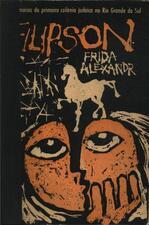
Frida Alexandr
A Brazilian-born daughter of immigrants, Frida Alexandr was the only woman writer to describe Jewish cowboys in Brazil from the viewpoint of one who lived among them. Her only published book was the novel Filipson, which chronicled the lives and episodes of the farm where she was born in 1906 and spent two decades of her life.
Lizzie Spiegel Barbe
Lizzie Spiegel Barbe, a member of a prominent Chicago family, devoted more than fifty years of her life to being a clubwoman and leader within the Chicago Jewish community. Like other “Jewish Clubwomen” of this era, Barbe was motivated to establish leadership roles for women that had previous not existed within the organized Jewish community.
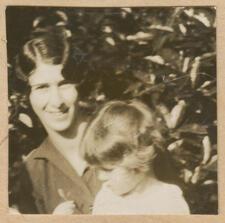
Dorothy Walter Baruch
Psychologist Dorothy Walter Baruch championed the health development of children as an educator, author, psychologist, and as a community leader. Her psychodynamic approach to child development focused on the relationship between physical, emotional, and intellectual development and on rechanneling children’s feelings through play and art therapy.
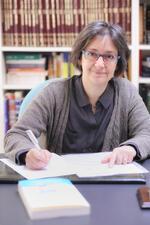
Pauline Bebe

Jessica Beckerman
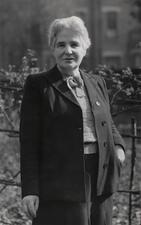
Helen Bentwich
Helen Bentwich was an active community organizer, activist, and local politician. She and her husband, Norman, aided in helping people escape Nazi persecution and split their time between Palestine and England for many years.
Beatrice Berler
Beatrice Berler was an award-winning translator of Spanish-language novels and history and a renowned community activist. She worked in women’s fashion for over twenty years before returning to school at the age of forty-five, eventually becoming nationally recognized as a literacy activist.
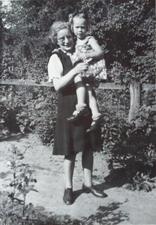
Clementine Bern-Zernik
A lawyer by training, Vienna-born Clementine Bern-Zernik produced broadcasts for the US Office of War Information in London during the war, served as the director of a Displaced Persons Camp in post-war Germany, and spent the last 50 years of her life as a UN liaison to the New York Public Library. Throughout her life she maintained a strong Austrian identity and was a founding member of the Austrian-American Federation.
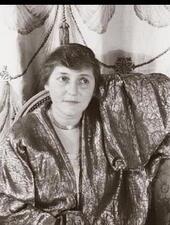
Aline Bernstein
Aline Bernstein was one of the first theatrical designers in New York to make sets and costumes entirely from scratch and craft moving sets. She designed sets for the Theatre Guild and various independent producers, winning numerous awards for her work, including a Tony for costume design for Regina in 1949. She later founded the Costume Museum and began writing fiction.
Rebecca Thurman Bernstein
Rebecca Thurman Bernstein was lauded by local and national organizations for her efforts to improve health care, literacy, and Jewish life in Portland, Maine. Bernstein was proud of her Jewish heritage and worked for many Jewish causes, but her interests were not limited to or by her Jewishness.
Meta Pollak Bettman
Meta Pollak Bettman was an untiring volunteer in Jewish and civic causes in the early twentieth century.
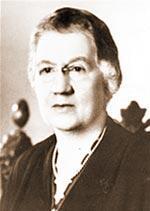
Henrietta Gittelson Blaustein
Henrietta Gittelson Blaustein was an American philanthropist. When her husband died in 1937, she became the chairperson of the Louis and Henrietta Blaustein Foundation. In 1951, the foundation awarded $1,000,000 to the Sinai Hospital and the Jewish Medical Center in Baltimore – the largest individual contribution ever made to a Jewish organization at that time.
Madeleine Borg
Madeleine Borg, a juvenile rights advocate, is known for reframing juvenile rehabilitation efforts in both Jewish and non-Jewish communities. Borg founded the American Big Sisters movement in 1912 and went on to establish the Council Home for Jewish Girls.
Anna Pavitt Boudin
A dentist by career, Anna Pavitt Boudin is remembered for her prominent role in the American’s Women ORT. While maintaining her own private dental practice, Boudin became the founding president of Women’s American ORT, an organization that grew to be one of the largest Jewish women’s organizations in the United States.
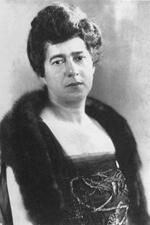
Rose Brenner
As president of the National Council of Jewish Women, Rose Brenner focused on inclusion of people who were often marginalized—the deaf, the blind, and those isolated in rural areas.
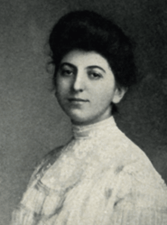
Fanny Fligelman Brin
A riveting public speaker, masterful politician, skilled organizer, and administrator, Fanny Fligelman Brin, who served two terms as president of the National Council of Jewish Women, from 1932 to 1938, is best remembered for her work on behalf of world peace during the interwar years.
Britain: Nineteenth and Twentieth Centuries
Since being allowed to resettle in 1656, Jews in Great Britain have established deep community ties throughout their diverse community. Class differences between early Sephardic settlers and the later wave of Ashkenazi immigrants gave rise to numerous Jewish charitable organizations, in which women played a key role.

Saidye Rosner Bronfman
Saidye Rosner Bronfman was a first-generation Canadian who used her wealth to benefit numerous Canadian Jewish organizations and philanthropies. Beginning in 1929, she served as the president of Montreal’s Young Women’s Hebrew Association for six years. In 1943 she was recognized by the British Empire for her philanthropic contributions to the war effort.
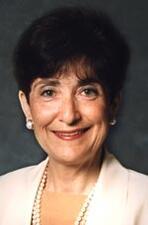
Sandra Brown
Sandra (Sandy) Brown, an outstanding leader of the Toronto Jewish community at the turn of the twenty-first century, is one of the most influential and effective leaders of Toronto Jewry, highly regarded as a person of extraordinarily broad experience, unfailing fairness and commitment, and unusually deep knowledge of education.
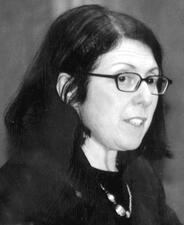
Canada: From Outlaw to Supreme Court Justice, 1738-2005
The positive aspect of the Canadian mosaic has been a strong Jewish community (and other communities) which nurtured traditional ethnic and religious values and benefited from the talent and energy of women and men restrained from participation in the broader society. The negative aspect has included considerable antisemitism and, especially for women, the sometimes stifling narrowness and conservatism of the community which inhibited creative and exceptional people from charting their own individual paths.
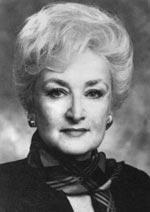
Shoshana S. Cardin
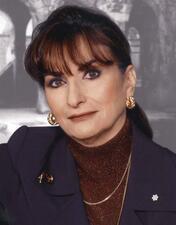
Judy Feld Carr
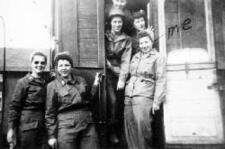
Charlotte Chaney
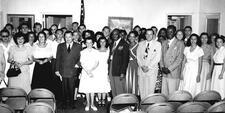
Civil Rights Movement in the United States
As part of the Black-Jewish civil rights alliance and rooted in twentieth-century political, cultural and gender dynamics, Jewish women’s activism took many forms. Jewish women contributed as professionals, through Jewish and women’s organizations, and as foot soldiers in the movement’s nonviolent direct action organizations such as CORE (the Congress of Racial Equality) and SNCC (the Student Nonviolent Coordinating Committee).
Civil War in the United States
During the Civil War, Jewish women performed a range of classic responsibilities brought on by wartime exigencies. Their efforts tended to generate little in the way of documentation, and thus historians studying the involvement of Jewish women in the Civil War and the impact of the war on Jewish women have a sparse body of primary sources upon which to draw.


